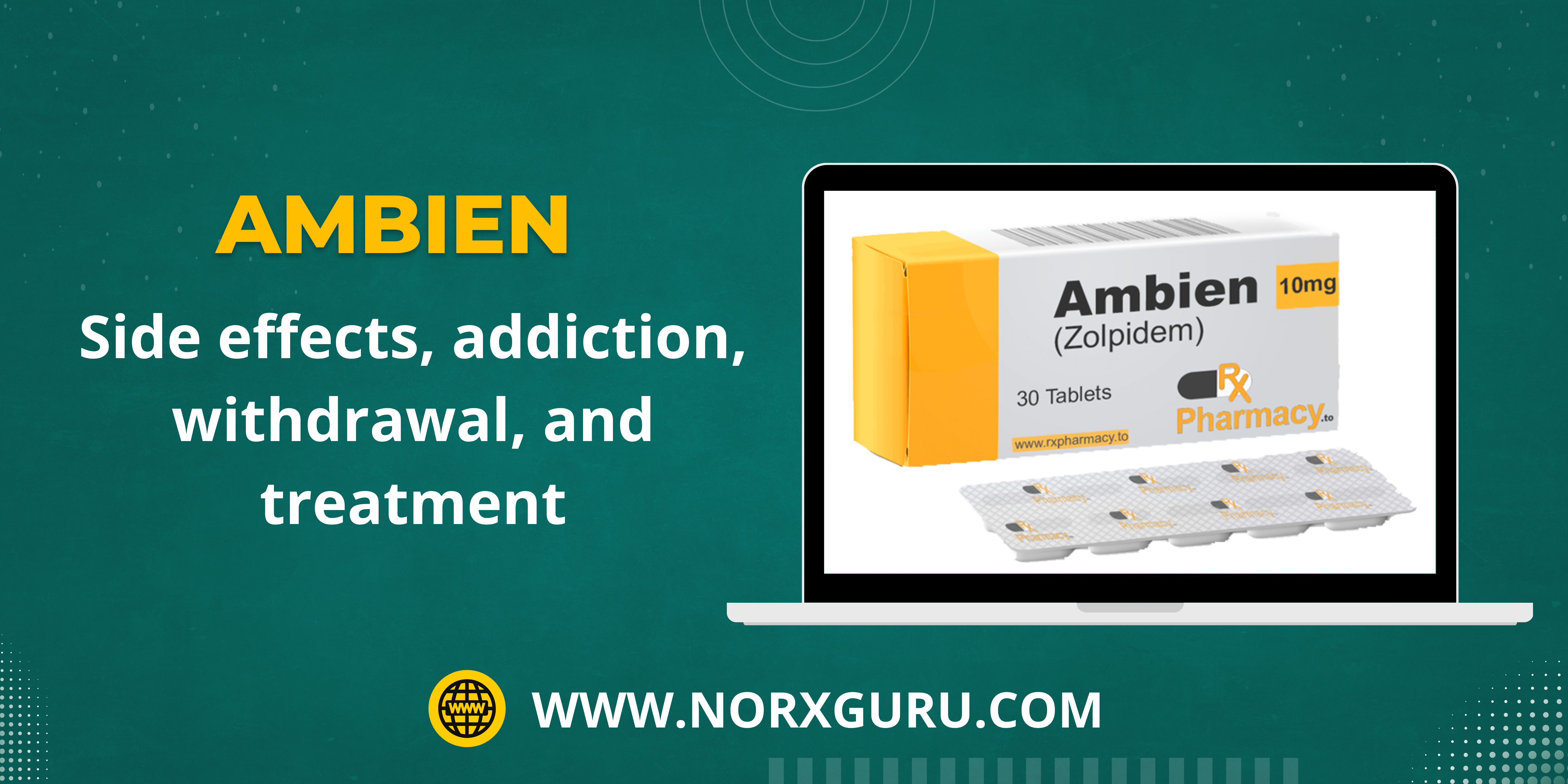What is Ambien?
Ambien is a medication prescribed for the short-term treatment of sleeping problems. Ambien is the generic name for Ambien, which is classified as a sedative-hypnotic drug that primarily acts on the central nervous system, including the brain and spinal cord, to produce a calming effect to help you get a good and proper rest.
It works by affecting the chemicals in your brain that might be unbalanced, especially in people with sleeping disorders like insomnia. Doctors suggest you take this medication, behavioral therapy, and proper sleep hygiene for better results.
How does Ambien work?
Ambien helps improve sleep by enhancing the effects of a natural chemical in the brain called GABA or Gamma-aminobutyric Acid, which acts as an inhibitory neurotransmitter that
inhibits the initiation, sending, and receiving of chemical messages or signals in the brain and spinal cord. GABA increased by Ambien has a soothing and relaxing effect on the body and helps you get to sleep.
How long do the effects of Ambien last?
The effects of Ambien last for about 7-8 hours, so it is suggested that you shouldn’t take this medicine unless you have time for a whole night’s sleep. If you wake up earlier than 7 hours after taking Ambien, you may experience memory loss. It would be best if you don’t do any activity or task requiring alertness, like driving or operating heavy machinery.
What are the side effects caused by Ambien?
The common side effects include-
- Daytime drowsiness
- Dizziness
- Weakness
- Feeling lightheaded
- Loss of coordination
The common side effects of Ambien should reduce with time as your body gets used to the dose. If they persist or get worse, it is advised that you inform your doctor.
The severe side effects are-
- Chest pain
- Fast or irregular heartbeat
- Shortness of breath
- Trouble breathing or swallowing
- Frequent or severe mood changes
- New or worsening depression or abnormal thoughts like suicide
The severe side effects are uncommon and rarely noticed in patients. If you see any of these side effects of Ambien, you should look for immediate medical help and inform your doctor.
A very serious allergic reaction to Ambien is rarely noticed among patients. However, if you notice side effects like rashes, itching or swelling of the face, tongue, and throat, severe dizziness, and difficulty breathing, you should immediately call for medical assistance. It would be best if you do not mix alcohol or cannabis products with it to avoid severe side effects, which may even cause death in some instances.
How should you take Ambien?
You can take it orally on an empty stomach once a night. Since Ambien works quickly, within 45 minutes – 1 hour, it is advised that you take it right before you go to bed and not to repeat the dose unless specified otherwise by the doctor. The dosage prescribed to you is based on your age, gender, medical condition, and response to treatment. It is advised that you don’t increase your dosage on your own without a doctor’s consultation.
Ambien Addiction, Withdrawal, and Treatment
It can be habit-forming and addictive, so taking your dosage in moderation would be sensible. People who have faced substance misuse and abuse are more likely to be addicted to Ambien. It is recommended that you inform your doctor about your medical history, especially about breathing problems, blood pressure conditions, liver or kidney disease, and a mental disorder like depression or suicide ideation.
If you stop using Ambien unexpectedly after using it for a long duration, you may face withdrawal symptoms like nausea, vomiting, stomach cramps, shakiness, and flushing. It is suggested that you taper your dosage as instructed by your doctor before you discontinue. If you have been using it in high doses or for a prolonged period, you may develop a dependence or tolerance. You should inform your doctor if you think the dosage prescribed isn’t working instead of increasing it on your own.
If you are facing withdrawal symptoms, it is suggested that you inform a family member or a close friend. Cognitive behavioral therapy or CBT and group therapy might help you deal with your symptoms and save you from addiction to Ambien.

